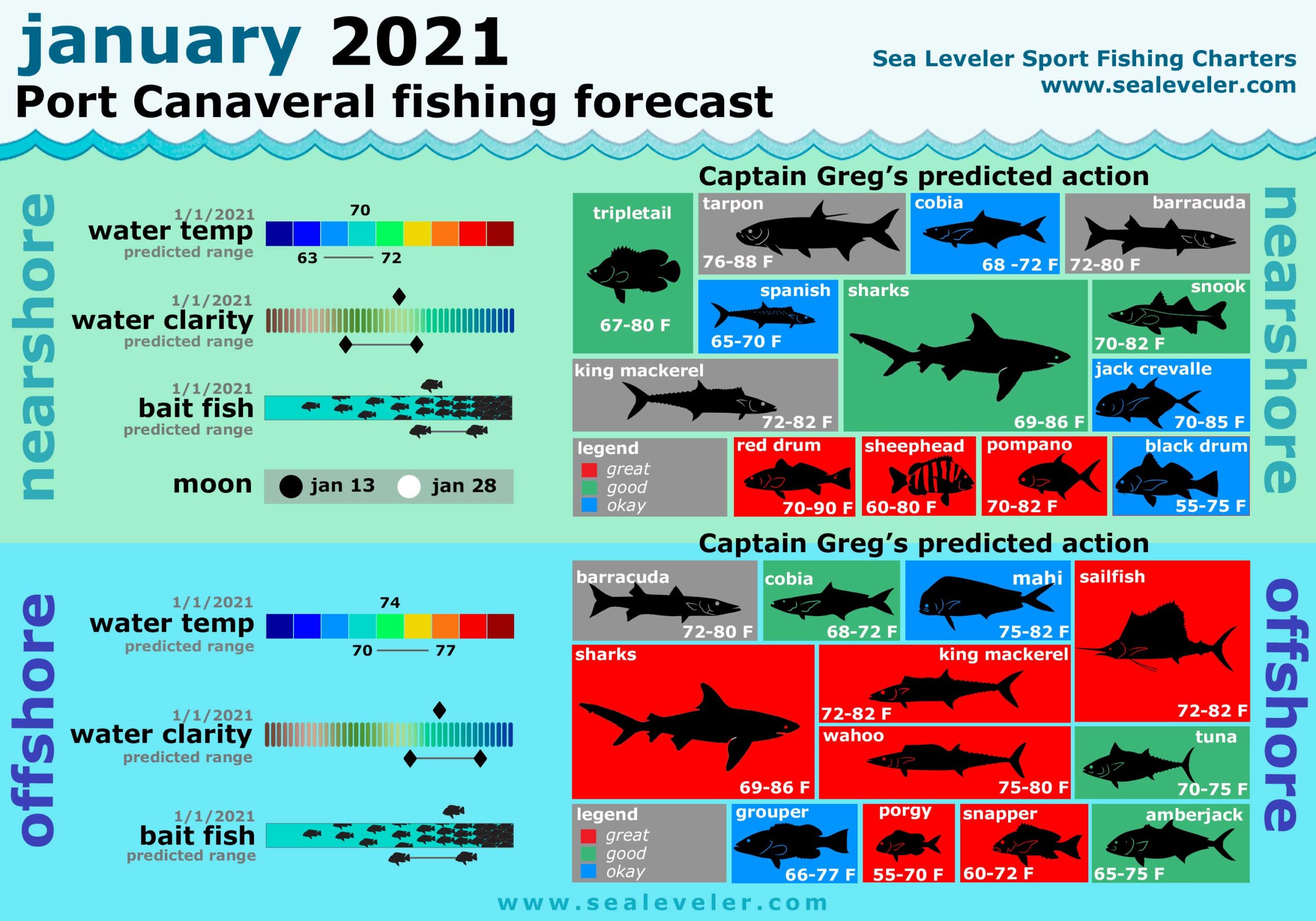Florida is a fisherman’s dream, especially in January. The weather is cooler, and the fish are plentiful. In this guide, we’ll explore the top fish you can catch in the Sunshine State at the start of the year. We’ll also provide some handy fishing tips for beginners looking to reel in a big catch!

Credit: www.reelcoquinafishing.com
Your Go-To Guide for January Fishing in Florida
Top Florida Fish Species In January
January is a great month to fish in Florida. Here are some of the top fish you can expect to catch:
- Speckled Trout – Known for their spotted appearance.
- Redfish – Famed for their reddish bronze color.
- Black Drum – They have whisker-like barbels under their chins.
- Sheepshead – They’re easy to spot with their black and white stripes.
- Pompano – These are silver with yellow on the bottom.
| Fish Species | Average Size | Legal Size to Keep |
|---|---|---|
| Speckled Trout | 1-4 lbs | 15-20 inches |
| Redfish | 5-15 lbs | 18-27 inches |
| Black Drum | 5-30 lbs | 14-24 inches |
| Sheepshead | 1-8 lbs | 12-20 inches |
| Pompano | 1-3 lbs | 11-20 inches |
Make sure to check the latest Florida fishing regulations as these might change.
Top Fishing Locations In Florida For January
Knowing the right spots for fishing can be a game-changer. Here are some top locations:
- Destin – Nicknamed the “World’s Luckiest Fishing Village.”
- Tampa Bay – Offers diverse fishing opportunities.
- Miami – Home to beautiful weather and big fish.
- Key West – A legendary spot with abundant species.
- Jacksonville – A prime location for a variety of fish.
Fishing Tips For Beginners
Here are some beginner tips to help you catch fish in Florida’s waters:
- Get the right gear: A medium action rod is a good all-around choice.
- Learn the basics of casting and retrieval of your fishing line.
- Use live bait: Shrimp and minnows attract a variety of Florida fish.
- Watch the weather: Fish behavior can change with the weather.
- Be patient: Fishing is as much about patience as it is about skill.
- Respect the rules: Always follow local fishing regulations and guidelines.

Credit: www.sealeveler.com


